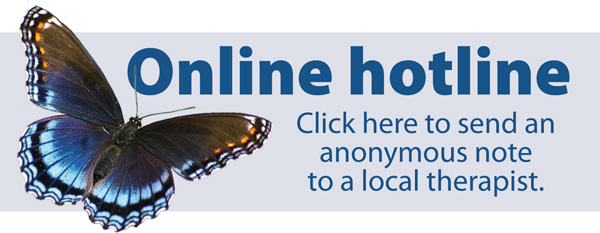
We have a 16-year-old daughter who has a part-time job a few nights a week and on weekends. She’s saving up for a computer that she really wants. I’m very concerned that she may have been sexually harassed by her boss. I monitor her social media activity and saw that she posted a #metoo on someone else’s post.
When we were watching the news a few weeks ago, she became visibly emotional when the Harvey Weinstein story was discussed. I asked her what was wrong and she just said she was tired and went to her room. My husband is so worried that he wants to tell her to quit her job and we’ll buy the computer for her. But I don’t want to teach her to always run from a problem, and if something happened, I want her to tell us so we can report this man.
How should we approach this situation in a way that would be best for our daughter’s emotional health but not sweep this issue under the rug?
Response by Erin Goodwin, MS, LPC
First and foremost, I would like to commend you on being in tune with what is going on with your teenage daughter. You have picked up on several clues that something might be upsetting to her. Several things come to mind that you will want to consider when approaching this potentially sensitive topic.
- Be careful not to jump to conclusions/make assumptions.
- Prepare yourself to hear something difficult
- Make sure she feels supported, not blamed or guilty
- Allow autonomy, to an extent, when talking next steps with her
One of the best approaches with teenagers is to be very open to hearing them out. When you do approach her, be very thoughtful in the words you choose. Start with letting her know how much you care about her and support her no matter what. Let her know what you have observed recently and be prepared to let her take it from there.
 You can state very directly, “I saw on social media you posted #metoo and that you seemed upset at the news reports the other day.”
You can state very directly, “I saw on social media you posted #metoo and that you seemed upset at the news reports the other day.”
Then a gentle statement that allows her to share more, “I want you to know you can talk with me about anything.” If she chooses to share with you that her boss or someone else has harassed or assaulted her, try your best to keep calm. If you explode with anger or frustration, then she may perceive that as she has done something wrong and there is a strong chance that she will shut down.
If you need to take some deep breaths to calm yourself first, then remind her that you are not upset with her. You are concerned about her and hate to hear that someone could have hurt her. It is important for your daughter to hear that you support her and understand that this has nothing to do with her and everything to do with the choices that individual made. This may take several reminders that there wasn’t anything she “should” have done.
Do remind her that you are there to support her no matter what happens. Avoid questioning her with comments like, “Why didn’t you tell me? What were you thinking? Why didn’t you just quit?” These would only further the shame she may already feel. Again, reassure her that you love her no matter what happens and this was absolutely the other person’s fault, not hers. Once everyone has had a chance to share (perhaps need a good cry together) then it would be time to talk next steps. This could be an hour later or a few days later, depending on how comfortable your daughter is with moving forward.
Depending on what happened, let your daughter know that there are some steps that you as parents may feel are necessary, including police involvement, quitting her job, or reporting the individual. Find ways that you can empower her as she decides when and how these things will happen.
You all can work with her to help guide her on identifying a plan of action include the possibility of continuing her work at her current job. If she is very motivated to get the computer she wants, instead of offering to give her the money, talk with her about her comfort in finding another job. If another job isn’t appropriate yet you could explore the idea of finding ways she could earn extra cash by picking up jobs for the family until she feels comfortable out in the workplace again. In the end, ensure your daughter understands that you support her.
Keep in mind, too, that your daughter may not be ready to share her experience with you yet. Do not force her to speak with you about what happened. She may feel more comfortable speaking with someone outside her own family about what happened.
You may want to consider offering to let her talk with someone else about her experience. If your daughter appears to experience symptoms of anxiety and/or depression, or if she would prefer to talk to someone who is not a family member, there are many ways to reach out for support through school counselors, local agencies, and counseling services. At Ozark Guidance, we are ready to support you and your daughter through this experience.
Therapists at Ozark Guidance would be happy to answer your questions and read what’s on your mind. Click the butterfly icon below to fill out an anonymous submission form with your question or concern. The form contains NO identifying information and is designed to give local women an online place to share concerns with a person qualified to offer feedback.
 Disclaimer: This RESPONSE does not provide medical advice It is intended for informational purposes only. It is not a substitute for professional medical advice, diagnosis or treatment. Never ignore professional medical advice in seeking treatment because of something you have read on nwaMotherlode or Ozark Guidance websites.
Disclaimer: This RESPONSE does not provide medical advice It is intended for informational purposes only. It is not a substitute for professional medical advice, diagnosis or treatment. Never ignore professional medical advice in seeking treatment because of something you have read on nwaMotherlode or Ozark Guidance websites.





